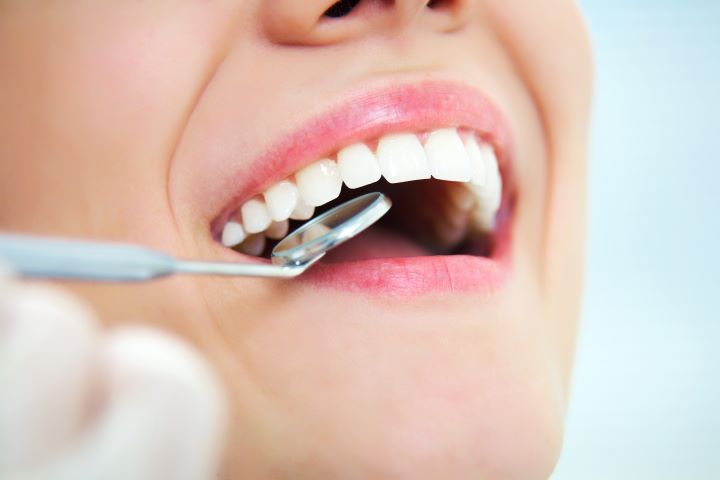Understanding Dental Implants: Types, Benefits, and Success Factors
Dental implants have revolutionized modern dentistry by providing a permanent solution for missing teeth. These titanium posts surgically placed into the jawbone serve as artificial tooth roots, supporting crowns, bridges, or dentures. With success rates exceeding 95%, dental implants offer a durable alternative to traditional tooth replacement methods, restoring both function and aesthetics while preserving jawbone health.

Modern dental implants represent one of the most significant advances in restorative dentistry, offering patients a reliable solution for tooth loss that closely mimics natural teeth in both appearance and function. These sophisticated devices consist of a titanium post that integrates with the jawbone, creating a stable foundation for replacement teeth.
What Are the Different Types of Dental Implants and Their Common Uses?
Dental implants come in several varieties, each designed for specific situations and patient needs. Endosteal implants are the most common type, consisting of titanium screws placed directly into the jawbone. These are ideal for patients with adequate bone density and are typically used for single tooth replacement or to support bridges and dentures.
Subperiosteal implants sit on top of the jawbone but beneath the gum tissue, making them suitable for patients with insufficient bone height who cannot undergo bone augmentation procedures. Zygomatic implants represent a specialized option for patients with severe upper jaw bone loss, anchoring into the cheekbone rather than the maxilla.
Mini implants, smaller in diameter than traditional implants, are often used to stabilize lower dentures or in areas with limited space. All-on-4 and All-on-6 systems utilize strategically placed implants to support full arch restorations, providing comprehensive tooth replacement with fewer implants than traditional methods.
How Do Dental Implants Benefit Oral Health and Function?
The benefits of dental implants extend far beyond simple tooth replacement. Unlike removable dentures or bridges that rely on adjacent teeth for support, implants function independently, preserving the integrity of surrounding natural teeth. This independence eliminates the need to alter healthy teeth, maintaining overall oral health.
Implants stimulate the jawbone through normal chewing forces, preventing the bone resorption that typically occurs after tooth loss. This preservation of bone structure maintains facial support and prevents the sunken appearance often associated with long-term tooth loss.
Functionally, implants restore nearly 100% of natural bite force, allowing patients to eat all types of foods without restriction. This improved chewing ability supports better nutrition and digestion. Additionally, implants eliminate the speech difficulties and social embarrassment often experienced with loose dentures.
The psychological benefits are equally significant, as implants provide confidence in social situations and eliminate concerns about denture adhesives or unexpected movement during eating or speaking.
Which Factors Affect the Success of a Dental Implant?
Several critical factors influence implant success rates, with patient health being paramount. Adequate bone density and volume are essential for proper implant integration. Patients with insufficient bone may require grafting procedures before implant placement.
Smoking significantly impacts success rates, as tobacco use impairs healing and increases infection risk. Diabetic patients face additional challenges, as elevated blood sugar levels can interfere with the healing process and osseointegration.
Oral hygiene practices directly correlate with long-term implant success. Poor hygiene can lead to peri-implantitis, an inflammatory condition that can result in implant failure. Regular professional cleanings and meticulous home care are crucial for maintaining implant health.
The skill and experience of the dental team also play vital roles. Proper treatment planning, precise surgical technique, and appropriate prosthetic design all contribute to successful outcomes. Additionally, patient compliance with post-operative instructions and regular follow-up appointments significantly impacts long-term success.
What Materials Are Used in Modern Dental Implants?
Titanium remains the gold standard for dental implant materials due to its exceptional biocompatibility and ability to osseointegrate with bone tissue. Pure titanium and titanium alloys demonstrate excellent corrosion resistance and mechanical properties that closely match those of natural bone.
Zirconia implants have gained popularity as a metal-free alternative, particularly among patients with metal sensitivities or those seeking tooth-colored implant posts. These ceramic implants offer excellent biocompatibility and aesthetic advantages, especially in the anterior region where gum recession might expose the implant neck.
The surface treatments of implants have evolved significantly, with manufacturers developing various textures and coatings to enhance osseointegration. Sandblasted and acid-etched surfaces, plasma-sprayed coatings, and nanotechnology applications all contribute to improved bone-to-implant contact and faster healing times.
Implant components, including abutments and screws, are typically manufactured from titanium or titanium alloys, though zirconia abutments are increasingly used for aesthetic considerations in visible areas.
| Provider Type | Average Cost Range | Treatment Options |
|---|---|---|
| General Dentist | $3,000-$4,500 | Single implants, basic cases |
| Oral Surgeon | $3,500-$6,000 | Complex surgical cases, bone grafting |
| Periodontist | $3,200-$5,500 | Gum-related complications, maintenance |
| Prosthodontist | $4,000-$7,000 | Complex restorative cases, full mouth |
Prices, rates, or cost estimates mentioned in this article are based on the latest available information but may change over time. Independent research is advised before making financial decisions.
The field of dental implantology continues to evolve with advancing technology and materials science. Success rates remain consistently high when proper patient selection, surgical technique, and maintenance protocols are followed. For individuals considering dental implants, consultation with qualified dental professionals ensures appropriate treatment planning and optimal outcomes tailored to individual needs and circumstances.
This article is for informational purposes only and should not be considered medical advice. Please consult a qualified healthcare professional for personalized guidance and treatment.




